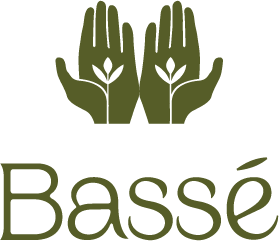Blog

Rewiring Trauma: Exploring Ibogaine Therapy for PTSD
Post-Traumatic Stress Disorder (PTSD) is more than just a psychological condition—it is a neurobiological response to overwhelming or life-threatening experiences. Trauma alters the way the brain processes fear, emotion, and memory, leaving individuals in prolonged states of nervous system dysregulation. This dysregulation manifests not just in the mind but throughout the body, contributing to chronic stress, sleep disturbances, immune dysfunction, and difficulty feeling safe, even in non-threatening environments.
For many, traditional treatment methods like talk therapy, cognitive behavioral therapy (CBT), and medication provide only partial relief. While these approaches can help manage symptoms, they often fail to address trauma at the root—within the nervous system itself. This is why individuals seeking a deeper, more transformative path to healing are turning to somatic therapy and plant medicine. Ibogaine therapy bridges both, offering a treatment that integrates neuroscience, nervous system regulation, trauma recovery, and personal transformation at its core.
Derived from the Tabernanthe iboga plant, Ibogaine treatment has gained recognition for its ability to promote neuroplasticity, facilitate deep trauma processing, and restore emotional regulation. By interacting with the brain’s neurotransmitter systems and fear-processing centers, Ibogaine offers a unique opportunity to reset maladaptive trauma responses—something few conventional treatments achieve.
As emerging research continues to shed light on Ibogaine for PTSD, its potential as an evidence-based trauma therapy is gaining wider recognition in the Western world. Ibogaine treatment is proving to be a promising alternative to trauma therapy—one that prioritizes both neurological repair and holistic integration.
How Ibogaine Affects PTSD Symptoms: Rewiring the Brain for Healing
Ibogaine therapy has gained attention for its profound impact on neurobiological processes linked to PTSD, offering a unique approach to trauma healing by targeting the brain’s stress-response mechanisms, emotional regulation pathways, and neuroplasticity. Unlike conventional treatments that focus on symptom management, Ibogaine treatment facilitates deep structural changes, allowing for a true reset of trauma-encoded patterns.
Resetting Trauma-Encoded Pathways
Emerging research suggests that Ibogaine may offer therapeutic benefits for individuals with Post-Traumatic Stress Disorder (PTSD) by modulating neural circuits associated with fear and anxiety. A Stanford study involving U.S. Special Operations veterans with PTSD and traumatic brain injuries (TBI) found that Ibogaine treatment led to an 88% reduction in PTSD symptoms, an 87% decrease in depression, and an 81% reduction in anxiety. These findings highlight Ibogaine’s potential to downregulate amygdala hyperactivity, allowing the brain to process memories with greater emotional distance rather than reliving them as immediate threats. Participants also experienced improvements in cognitive functions such as concentration and memory
Additionally, Ibogaine’s interaction with various neurotransmitter systems, including serotonin and NMDA receptors, may contribute to its ability to disrupt maladaptive neural loops that perpetuate PTSD symptoms like flashbacks and hypervigilance.
While these findings are promising, research on Ibogaine’s effects is still in its early stages, and further studies are needed to fully understand its therapeutic potential and safety profile.
Enhancing Emotional Resilience Through Neuroplasticity
PTSD disrupts the brain’s ability to form new, healthy coping mechanisms, leaving individuals stuck in survival-based reactions. Ibogaine therapy promotes neuroplasticity by increasing brain-derived neurotrophic factor (BDNF) and glial cell line-derived neurotrophic factor (GDNF)—proteins responsible for:
- Repairing trauma-damaged neurons
- Strengthening neural pathways associated with emotional regulation
- Promoting the formation of new, adaptive thought patterns
Research published in Frontiers in Pharmacology suggests that Ibogaine treatment upregulates BDNF and GDNF levels, facilitating the formation of new neural pathways that support improved decision-making, emotional regulation, and healthier behavioral patterns.
Regulating the HPA Axis and Cortisol Response
The hypothalamic-pituitary-adrenal (HPA) axis is a critical stress-regulation system that is often dysregulated in individuals with PTSD. Chronic trauma exposure disrupts cortisol production, leading to excessive stress responses (hyperarousal, anxiety, panic) or a blunted response (fatigue, dissociation, emotional numbness).
While research on Ibogaine therapy and its direct impact on cortisol regulation in humans is still emerging, preliminary studies suggest that Ibogaine may influence stress-related pathways and promote more balanced physiological responses. Some animal models have examined Ibogaine’s effects on the HPA axis, indicating potential for future clinical applications in stress modulation and trauma recovery. Further investigation is needed to determine the precise role of Ibogaine for PTSD in stabilizing cortisol levels and supporting long-term nervous system regulation.
Safety Protocols and Ethical Use of Ibogaine Therapy
While Ibogaine for PTSD shows immense promise, it is not without risks, and a single treatment is not a one-size-fits-all cure. Ibogaine treatment for PTSD should always be administered in a trauma-informed and medically supervised setting. At Bassé, we prioritize safety above all else, which is why every client undergoes a rigorous screening process, including:
- Electrocardiograms (ECGs) to assess heart health
- Mental health evaluations to determine psychological readiness
- Medication reviews to prevent interactions
The Bassé Ibogaine treatment includes real-time heart and vital sign monitoring and is conducted by an expert medical team. 24/7 support is provided by our team of trained professionals to ensure each client receives their treatment in the safest possible environment—minimizing risks while maximizing therapeutic benefits.
Integration with Professional Trauma Therapy: The Key to Lasting Healing
Ibogaine for PTSD is most effective when combined with ongoing therapeutic support. Healing is not a single event but a long-term process, requiring both neurobiological treatment and psychological integration to create sustainable change.
The Importance of Trauma-Informed Care and Integration
Effective trauma healing requires a safe and supportive environment. Many individuals who seek Ibogaine treatment for PTSD have experienced medical trauma, boundary violations, or institutional mistrust, making it crucial that any treatment—especially Ibogaine therapy—is provided within a trauma-informed framework. At Bassé, we prioritize:
- Collaboration with therapists before, during, and after treatment
- Emphasis on nervous system regulation techniques
- Integration support to process insights sustainably
The neurobiological effects of Ibogaine treatment create a window of heightened neuroplasticity, making it an optimal time to reinforce healthy coping strategies and integrate new emotional patterns. At Bassé, we recognize that true transformation extends beyond Ibogaine treatment itself, which is why our multidisciplinary team is trained in a range of holistic, evidence-based trauma therapies.
Throughout their time at our clinic, clients are introduced to:
- Somatic-based therapies (Somatic Experiencing, Polyvagal-informed practices)
- Lifestyle practices (daily movement, nature exposure, mindfulness, and breathwork)
- Integrative bodywork (such as massage and Rolfing)
By incorporating these therapeutic modalities before, during, and after Ibogaine therapy, we help clients reinforce the new neural pathways formed during treatment, supporting long-term healing. We provide immediate integration support post-treatment, along with continued guidance in the critical weeks that follow. This ensures that the insights and neurological reset achieved during Ibogaine therapy translate into lasting transformation and long-term recovery.
Ibogaine as Part of a Larger Trauma Recovery Toolkit
While Ibogaine for PTSD is a powerful catalyst for healing, it is not a miracle cure. Sustainable recovery requires a holistic, multi-layered approach that includes neuroscientific, psychological, and somatic healing modalities. By combining Ibogaine therapy with evidence-based trauma therapies, individuals can experience a deeper, more sustainable resolution of PTSD symptoms, allowing them to step into a future free from the constraints of past trauma.
At Bassé, we provide a clinically-supported, trauma-informed approach to Ibogaine treatment, ensuring that each individual receives the highest standard of care, safety, and integration support. Contact us today to learn more about evidence-based Ibogaine therapy for PTSD and take the next step in your healing journey!
